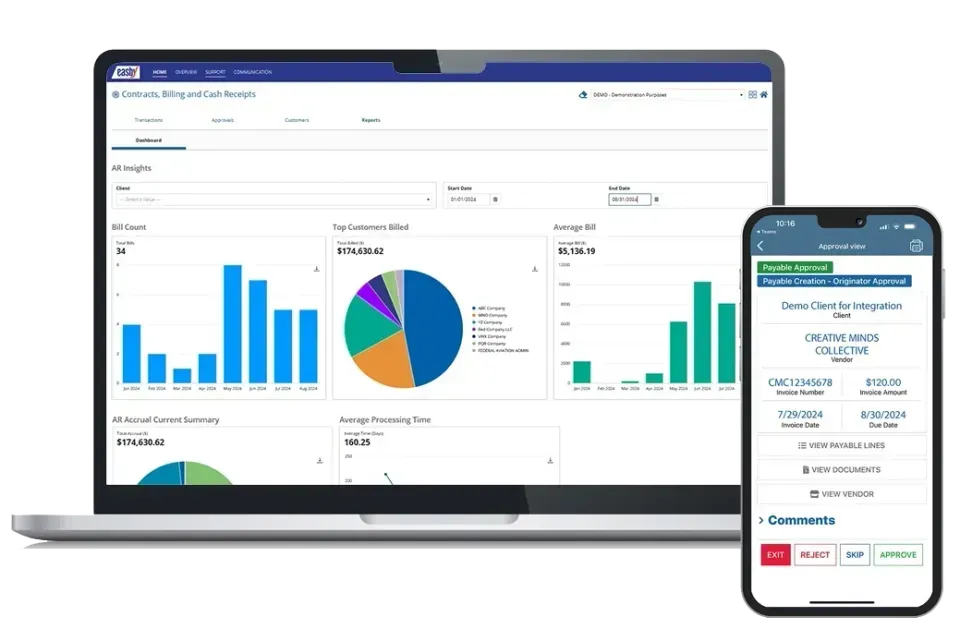Government Contractors: How to Align Finance and Accounting with Your Projects
Rose Report: Issue 43
BY TED ROSE, ROSE FINANCIAL SOLUTIONS
Project-centric organizations such as government contractors, construction companies, and architect firms, know that success relies on ensuring projects are delivered on time and on budget. Having project controls in place helps companies monitor the status of a project to make sure that goals are being met—both from a timeline and financial perspective.

Typically, project-centric organizations track costs by project, recognize revenue by project, and ultimately, project performance and profitability drives the overall organizational structure. Often, these organizations have individual project managers that are responsible for managing a project’s operational performance as well as its overall profitability. Those projects are then rolled up to individual programs which may then roll up to individual divisions and finally roll up to an overall firmwide view. While many large project-based companies organize their internal finance and accounting department where project controls is a specific function, many smaller project-centric companies have accounting-centric solutions where the focus is on the past performance of a contract, not the future performance and looks at the overall performance of the company without understanding the profitability at the individual project level, which is where the true profitability of a company can be impacted.
What’s missing is the interface between the accounting transactional data, the contract administration, and the project manager working on a customer site to oversee the project success. Project managers tend to prioritize project operational success over spending time taking care of other administrative responsibilities including approving time sheets, examining profitability of individual staff working on the contract, calculating estimates to complete on the project, and verifying billings to the customer.
Introducing RFS Project Controls
At Rose Financial Solutions (RFS), we align our finance and accounting functions in the same manner in which larger project-centric government contractor clients operate. Through RFS Project Controls, small- and mid-sized government contractors can gain the project controls capabilities that large firms have embedded in their finance and accounting systems. Combining people + processes + technology, our Project Controls solution not only provides the interface between your traditional accounting function, contracts, and your project manager, our team has the knowledge and expertise to help navigate government contracting requirements and regulations.
RFS Project Controls leads to:
- Greater visibility into project performance—from both a timeline and financial perspective
- Enhanced ability to perform Estimates to Complete
- Better progress monitoring capabilities also known as earned value analysis (EVA). This can reduce cost overruns and is used for progress monitoring at every step of the contract
- Improved profitability of projects over the life of the engagement
- Accounting functions that are aligned with contracts
- Increased accuracy and lower rejection rates on invoices that are submitted to customers
- Increased cash flow by reducing the amount of time for accounts receivables to collected
- Improved reconciliations, contract compliance including reduced cost and burden of Incurred Cost Submissions
At RFS, we position our clients for project success. Our Finance as a Service (FaaS) solution provides you with the capabilities of an entire in-house finance, accounting, and tax department at a fraction of the cost. Going beyond traditional accounting outsourcing, RFS’ solution combines our cutting-edge technology platform, Easby-powered by RFSWorkflow, and our team of experienced finance, accounting, tax, and technology professionals. With the best people + processes + technology, we help our clients achieve more with financial confidence.
Find out more on how RFS Project Controls can align your finance, accounting, contract, and project management functions for project and firmwide success.

Ted Rose
In 1994 Ted Rose founded Rose Financial Solutions (ROSE), the Premier U.S. Based Finance and Accounting Outsourcing Firm. In 2010, the Blackbook of Outsourcing named ROSE the #1 FAO firm in the world based on client satisfaction. As the president and CEO of ROSE, he provides executives with financial clarity. Ted has also acted as the CFO for a number of growth companies and assisted with various rounds of financing and M&A transactions.
Share this article:
Visit Us On:



